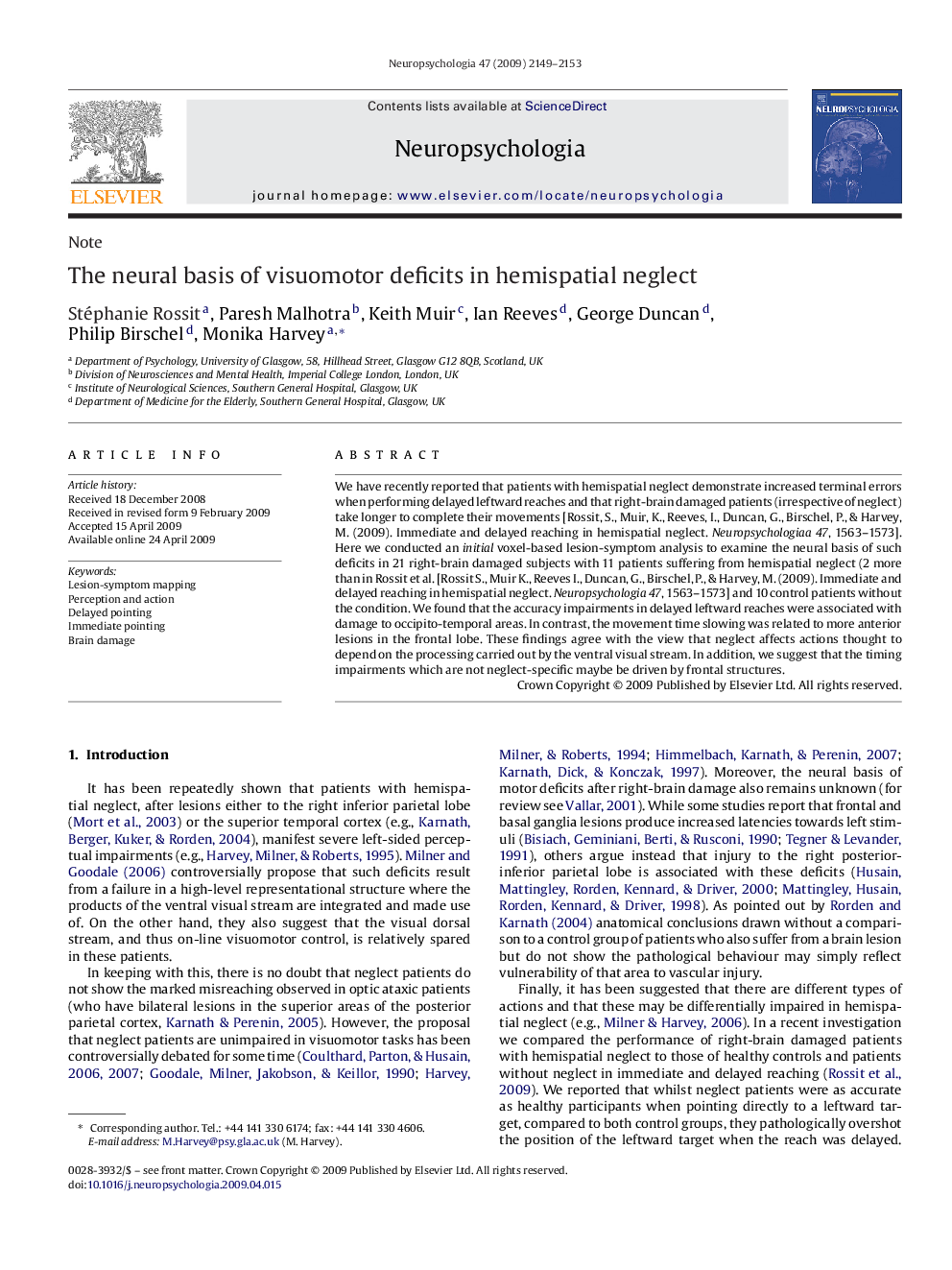| Article ID | Journal | Published Year | Pages | File Type |
|---|---|---|---|---|
| 945243 | Neuropsychologia | 2009 | 5 Pages |
We have recently reported that patients with hemispatial neglect demonstrate increased terminal errors when performing delayed leftward reaches and that right-brain damaged patients (irrespective of neglect) take longer to complete their movements [Rossit, S., Muir, K., Reeves, I., Duncan, G., Birschel, P., & Harvey, M. (2009). Immediate and delayed reaching in hemispatial neglect. Neuropsychologiaa 47, 1563–1573]. Here we conducted an initial voxel-based lesion-symptom analysis to examine the neural basis of such deficits in 21 right-brain damaged subjects with 11 patients suffering from hemispatial neglect (2 more than in Rossit et al. [Rossit S., Muir K., Reeves I., Duncan, G., Birschel, P., & Harvey, M. (2009). Immediate and delayed reaching in hemispatial neglect. Neuropsychologia 47, 1563–1573] and 10 control patients without the condition. We found that the accuracy impairments in delayed leftward reaches were associated with damage to occipito-temporal areas. In contrast, the movement time slowing was related to more anterior lesions in the frontal lobe. These findings agree with the view that neglect affects actions thought to depend on the processing carried out by the ventral visual stream. In addition, we suggest that the timing impairments which are not neglect-specific maybe be driven by frontal structures.
